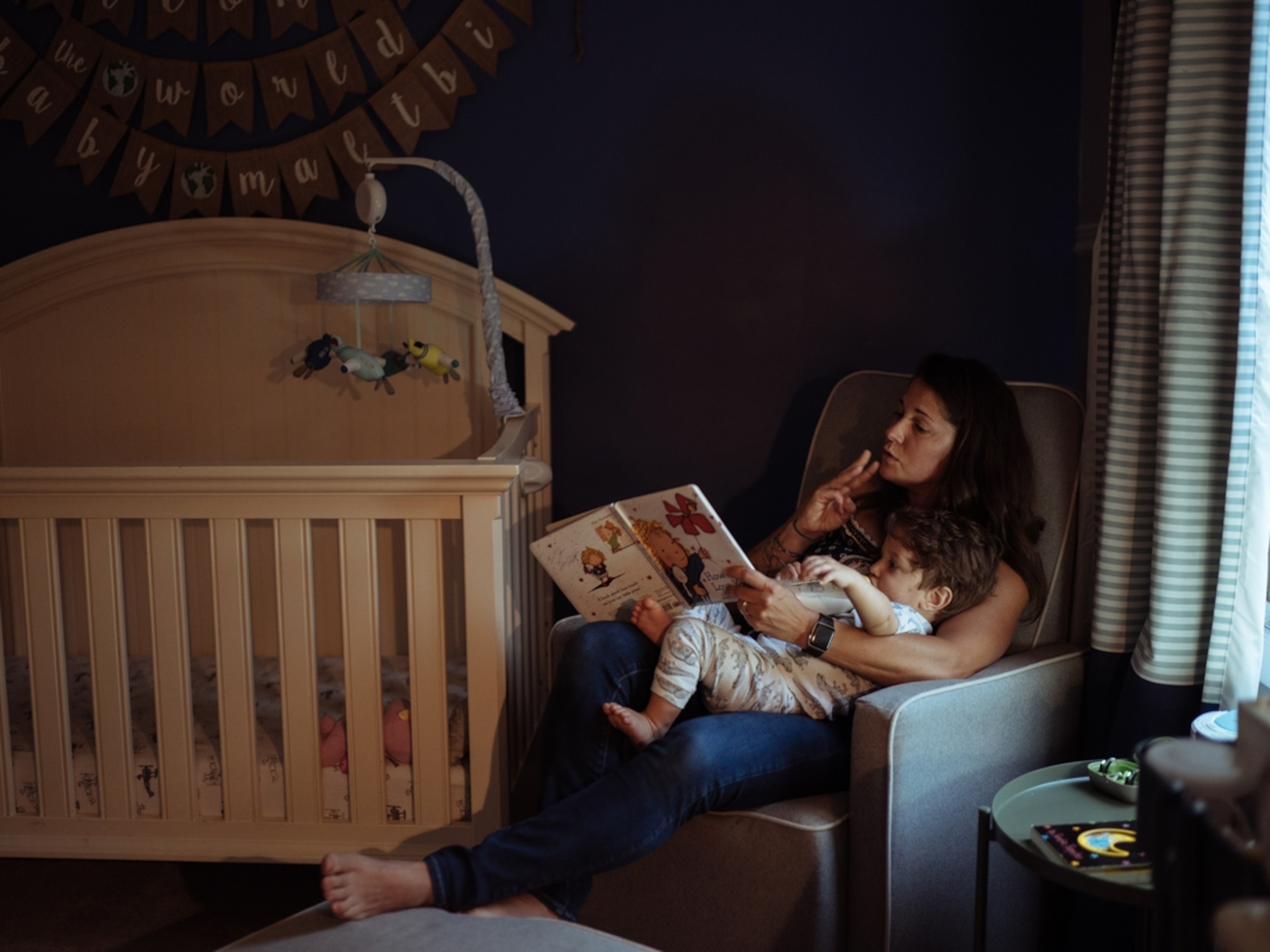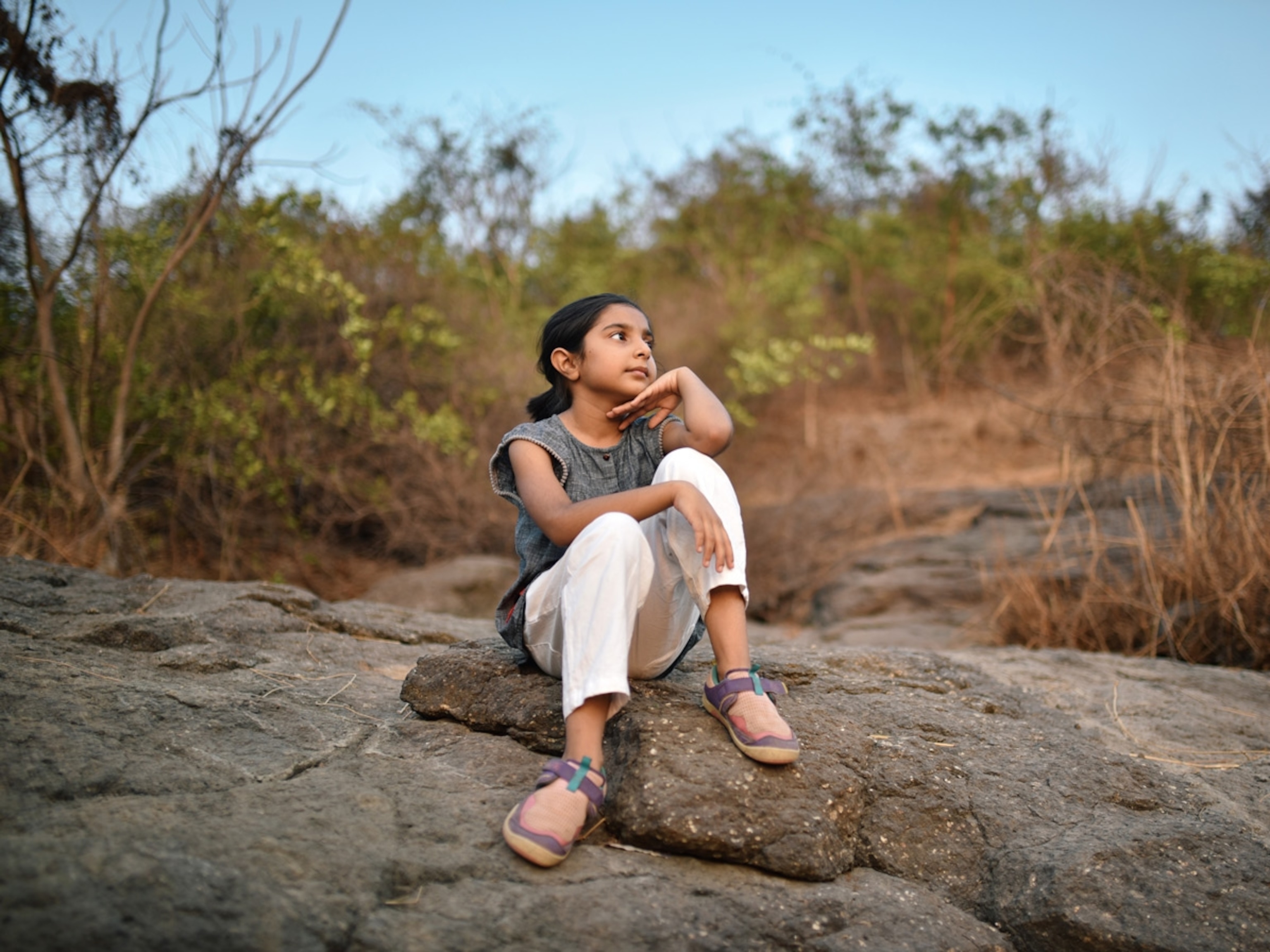
The lingering effects of pandemic sleep for kids
Children are still groggy from sleep disruptions during the pandemic. Here’s how parents can help.
Eleven-year-old Phoebe Rothenberg never had trouble sleeping, but when her school shuttered during the initial COVID-19 wave in March 2020, her sleep took an immediate hit. To cope with the disruption, she turned to late-night reading. “But then she’d have trouble getting up in the morning, and it became this very vicious cycle,” says mom Victoria Rothenberg, a fiber artist and mother of three in Maryland.
Once Phoebe’s days resumed a more normal rhythm, her sleep schedule quickly regained ground. But with life still uncertain, it’s an uneasy equilibrium. Disruption to routines, for example, can easily set her back.
And she’s not alone. It will probably surprise no parent that studies show that sleep quality for elementary-school-age children suffered during the pandemic, particularly in the early weeks of the lockdown. And in a forthcoming paper in the Journal of Developmental and Behavioral Pediatrics, researchers at the University of Michigan found that kids in this age group—especially those in remote learning—awakened more readily in the middle of the night and experienced more nightmares.
Children’s brains are developing at a rapid clip, making and refining neural connections until the late teen and early adulthood years. And much of this activity occurs during sleep. “Sleep is fundamentally important and impacts how our brains will do long-term,” says Zheng Fan, a neurologist and pediatric sleep specialist at the University of North Carolina.
As children continue to grapple with pandemic-related disruptions and anxieties, will their sleep issues have long-term consequences? Here’s what the experts have to say about these concerns, including ways to get kids back on track.
The science of kids and sleep
As we sleep, we cycle through different stages that are divided into two categories: rapid eye movement (REM) and non-REM sleep. REM sleep—or the dreaming state—is characterized by fast, small brain waves that resemble the mind’s activity when we’re awake. Non-REM sleep is divided into three phases, with the first two considered light sleep.
The last phase of non-REM sleep consists of large, slow brain waves that sweep across the entire brain. This is deep sleep—and it’s incredibly important for brain maturation.
“In younger kids, slow-wave activity is greatest at the back of the brain, the site of early neural development,” says Rebecca Spencer, a neuroscientist at the University of Massachusetts Amherst. As kids get older, these waves move to the front, coinciding with structural changes in the frontal cortex, which handles high-level cognitive functions such as planning and problem solving.
Spencer and her collaborator, Tracy Riggins of the University of Maryland, believe that the reason sleep plays such a crucial role in brain development and health lies in its role in forming memories. When we’re in slow-wave sleep, neurons in the hippocampus, where our short-term memory resides, fire in the same pattern that they do when we’re awake, Riggins says.
This replay of our experiences transfers memories from the hippocampus to long-term storage in the cortex. The mind, as a result, is then refreshed enough to handle demanding new tasks in what Spencer calls the “cool-as-a-cucumber effect.”
REM sleep’s function is less understood, but it’s thought to be involved in emotional processing, which helps kids manage their feelings and exhibit more resiliency. “REM might tag interesting and important memories and say, ‘Why don’t you go back and work on it some more the next time you go into [deep] sleep,’” Spencer says.
Sleep is also restorative. During sleep, “the flow of our cerebral spinal fluid, which carries out waste products and transports some nutrients in our brain, speeds up,” Fan notes And sleep’s benefits are not limited to the brain.
“Every system in our body needs good quality sleep,” Fan says. When our sleep deteriorates, the effects ripple out beyond our brain, impacting the heart, digestive system, immune response, and more.
Pandemic’s effects on children’s sleep
The pandemic caused widespread disruption in everyone’s sleep, but especially in elementary-school-age kids. Unlike teenagers, for whom lockdowns sometimes had a positive effect on sleep, younger kids are more sensitive to stress.
If parents are anxious and uncertain, kids can feel out of control, which pushes their nervous systems to be on high alert. Stuck in a constant state of fight-or-flight, kids found it difficult to settle down to sleep.
“They were getting out of bed or asking for something to eat or drink—trying to soothe themselves,” says Jenny Radesky, a pediatrician at the University of Michigan’s C.S. Mott Children’s Hospital. Parents in her practice also reported more kids who couldn’t sleep through the night, or couldn’t sleep past, say, five in the morning.
Researchers in Switzerland who looked at children’s sleep patterns following Europe’s first lockdown echo these observations. “We know that sleep rhythms are affected by light cues, physical activity, and screen time—all of which were impacted,” says Andjela Markovic, a postdoctoral fellow at the University of Fribourg and lead author of the paper.
And though sleep quality had largely recovered a month after the initial survey, some measures—like amount of total sleep—continued to lag behind pre-pandemic levels. Radesky is seeing the same thing in her practice.
“Bedtimes and wake times drifted 30 to 60 minutes later for some families, including my own,” she says. And many of her patients who needed additional help to sleep—like melatonin, a hormone that regulates our circadian rhythm—at the beginning of the pandemic are still using those interventions for now.
Markovic and her colleagues will next investigate what delays in cognitive development, if any, have been caused by pandemic-fueled disruptions to sleep. Researchers already know that when kids sleep poorly, it impacts their ability to learn new things and take on new challenges. And studies have linked sleep issues in infancy and preschool-age kids to attention problems, anxiety, and social difficulties years later. How pandemic sleep disruptions will affect those things remains to be seen.
Help kids foster good sleep habits
That’s why, experts say, it’s important to invest in proper sleep strategies now. “Good sleep habits are one of the most important things a family’s well-being rests on,” Radesky says.
And parents and caregivers can do a lot to get kids back on track. “Young brains have an incredible ability to adapt and recover,” Riggins says.
For instance, sudden disruptions unbalance children. “So finding ways to establish predictable routines helps kids feel safe and secure,” Radesky says. That means consistent bedtimes: Because our bodies follow an internal clock, we fall asleep more easily when we go to bed within the same hour-long window every night.
Finding ways to defuse the day’s stress and emotions can also lead to better sleep. Rather than watching television or YouTube videos to unwind before bedtime, Radesky suggests reading stories together, trying a meditation app, or taking a bath. These activities all contain a sensory component—whether it’s the sound of your voice or the feeling of warm water—that can help kids relax.
To help figure out the right bedtime activity, Radesky suggests simply asking kids, “What calms you down and makes you feel relaxed?” Often, the answers could provide clues about what to incorporate into nighttime routines.
A child will also sleep better if their environment is set up for success. Dim the lights an hour before they climb into bed so that their brain gets the message that it’s almost time to sleep. Turn off screens, close the blinds, and eliminate blinking lights from the bedroom.
One thing not to forget? You. Markovic’s study linked parents’ stress with more disrupted sleep in children, but also that parents who practiced mindfulness techniques like yoga had children who also slept better.
“If we’re not focusing on our buzzing heads as parents, we’re not addressing the whole issue,” Radesky says.



